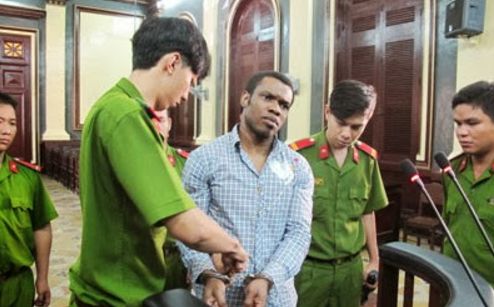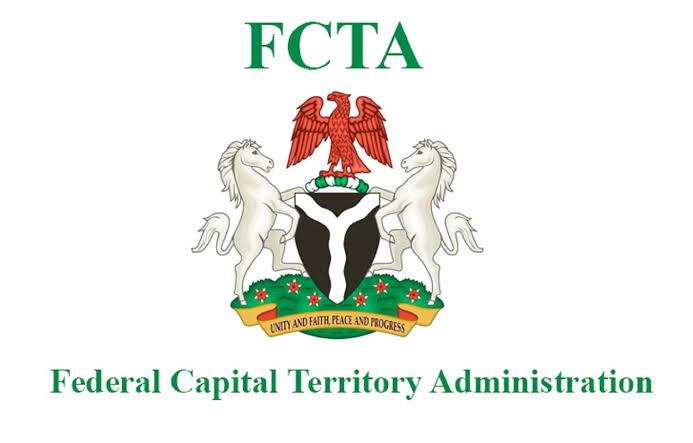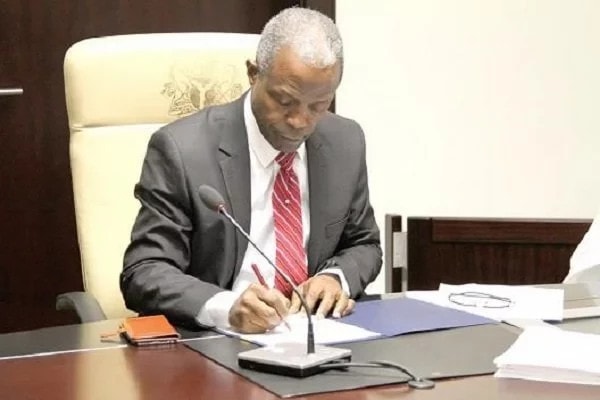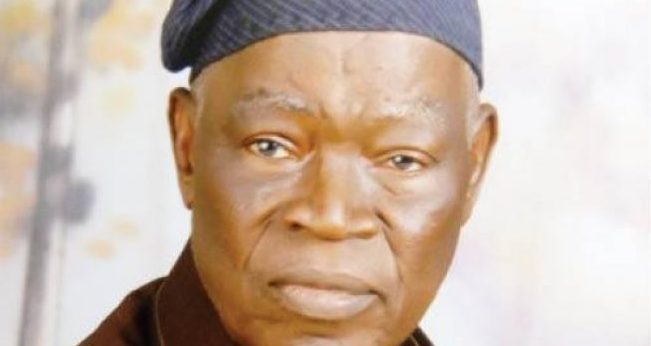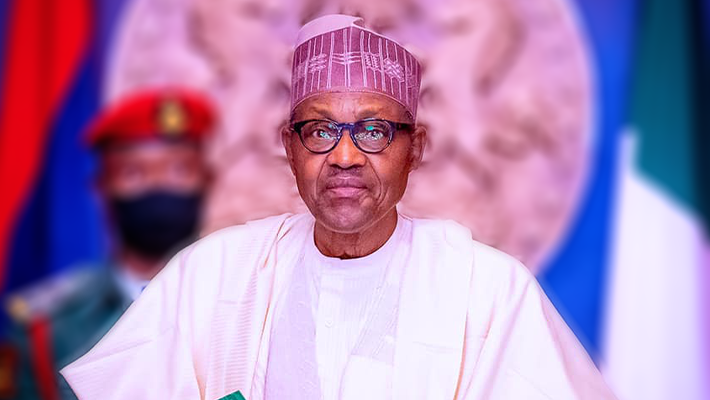While some are of the view that the use of death penalty nearly always carries with it the possibility of convicting, sentencing and executing an innocent person, others believe that it deters crime more effectively than other punishments as well as legitimizes vengeance and legalizes violence and bloodshed.
According to statistics from the Nigeria Law reports on death penalty in (2006-2011), nearly half of death sentences by trial courts were quashed on appeals indicating a high risk of wrongful convictions and sentences.
The statistics also stated that between 2006 and 2011 there were 113 reported and few known cases of convictions and death sentences passed by various divisions of High Courts States .
Such cases the statistics revealed were appealed within the period under study.
Analysis shows that 69 out of the 113 appeal cases got to Supreme Court while 44 rested the various divisions of court of Appeal.
The Supreme Court, according to the statistics, quashed 26 out of the 69 appeals against death sentences that got before it while confirming 43 of them. The Court of Appeal, on the other hand, quashed the death sentences of 22 out of the 44 appeal cases that got before it.
In another report published by Legal Defence and Assistance Project (LEDAP) in collaboration with Amnesty International, those sentenced to death are poor and that more than half of the convictions are based on confessions in many cases , extracted under torture.
Researchers say that Nigeria’s criminal justice system is riddled with corruption , negligence and lack adequate resources.
According to them, it is horrifying to think of how many innocent people may have been executed and may still be executed.
“The judicial system is riddled with flaws that can have devastating consequences . For those accused of capital crimes, the effects are obviously deadly, and irreversible. Life on death row is extremely harsh.
“Prisoners whose appeals are over are held in cells where they can see executions. After a prisoner has been hanged, other death row prisoners are forced to clean the gallows”, say the researchers.
Investigations reveal that about 80 percent of inmates in Nigeria prisons have been beaten , threatened with weapons or tortured in police cells. Consequently, confessions are often extracted under torture.
The police, according to experts, are over- stretched and under- resourced and as a result rely heavily on confessions than an expensive investigations.
“Under Nigerian law, if a suspect confesses under pressure, threat or torture, it cannot be used as evidence in court. Judges know that there is widespread torture by police and yet they continue to sentence suspect to death based on these confessions, leading to many possibly innocent people being sentenced to death,” they note.
Recently in Lagos, Legal Defence and Assistance Project (LEDAP) in collaboration with the Nigeria Death Penalty Group (NDEPELG), organized a one-day strategic round table discussion and training on moratorium of the death penalty in Nigeria.
The event, which held at the LEDAP/ICLE Training Centre in Lagos had in attendance Civil Society Organizations (CSOs), journalists and lawyers.
The forum discussed extensively the state of death penalty in Nigeria, focusing on:The challenges facing the use of death penalty in Nigeria, including the challenges of fair trials and the possibility of sentencing and executing innocent people; and the challenges of increased criminality in Nigeria, which increases the support of use of the death penalty in the country.
Other issues discussed at the event include; the plight of Nigerians who are facing death penalty in foreign countries and soldiers being sentenced to death for offences of mutiny; and the need to set up a moratorium on the use of death penalty in Nigeria.
Speaking at the event, Executive Director LEDAP, Chino Obiagwu, said death penalty could be associated with the possibility of convicting, sentencing and executing an innocent person and, therefore, stressed the need for the government to revisit the issue of death penalty and either abolish it altogether or introduce a moratorium.
He regretted that in spite of the fact that the Federal Government under President Olusegun Obasanjo introduced an official moratorium, executions were carried out in 2013 in Edo State, noting that many are being executed for offences of mutiny under circumstances that raise doubts of their fair trial.
LEDAP Executive Director who is also a legal practitioner called for the review of all military trials and to commute the sentences of those convicted and sentenced to death.
According to him, more than 16,250 Nigerians are in prisons abroad, just as he said that nearly 500 of them are facing death penalty charges.
Most of these Nigerians, he said, are held in China, Indonesia, Malaysia, Thailand, Saudi Arabia, Qatar and other South-East Asia countries.
“Most of the Nigerians convicted abroad did not receive fair trials because most of them did not have lawyers to defend them, the trials were held in languages they did not understand, in many cases, no interpreter was provided and more importantly, consular support services were lacking.
“Nigeria, being a signatory to the Vienna Convention on Consular Rights Services is under the legal obligation to provide consular services to each citizen facing criminal trials abroad. The countries of prosecution are also under the legal obligation to notify Nigeria of any Nigerian citizen that is in conflict with the law. This is a basic consular right of every person, which the International Court of Justice has held that if consular services are not provided to a person facing criminal charges in a foreign country, the trial is rendered unfair and the person must be released”.
He, therefore, called on the Nigerian Ministry of Foreign Affairs to ensure that consular services are provided to every Nigerian facing a criminal charge abroad.
Also, he stressed the need for the Ministry of Foreign Affairs to recruit and train legal attachés in all its missions, especially in South-East Asia, where many Nigerians are facing death penalty.
Speaking also at the event, Nathaniel Ngwu of Legal Resource Consortium, described right to life as the most important of all human rights, saying that civilized society cannot exist without the protection of human life. Maintaining that the inviolability of the sanctity of life is the most basic value of modern civilization, he said, if there were no right to life, there would be no point in the other human rights .
Considering the argument on whether to abolish or retain the death penalty in Nigeria, he said, “For those in support of the death penalty, it prevents crime more effective than other punishments; it stops drug related crimes.
“Death penalty responds to the needs of relatives of victims of crime. It curbs politically motivated violence and finally; and it is for justice and accountability.”
Looking at the other side of it, he explained that death penalty does not serve as a deterrent and that it is a practice that legitimizes vengeance and legalizes violence and bloodshed.
Speaking further, he said, “It brutalizes the society by devaluing human life, it is an irreversible punishment, whose devastating effect is clear where there is likelihood of mistaken or wrongful conviction”.
Quoting the Nigerian Constitution, he said : “The constitution of the Federal Republic of Nigeria, 1999, entrenches the protection of the right to life in accordance with international standards particularly the African Charter on Human and People’s Rights, Universal Declaration of Human rights and the International Covenant on Civil and Political Rights and the Convention Against Torture. Constitutional guarantee of the right to life as provided for in section 33(1) of the 1999 constitution is qualified. “For ease of reference the provision of section 33(1) is set out hereunder:
“Every person has a right to life and no one shall be deprived intentionally of his life, save in execution of the sentence of a court in respect of a criminal offence of which he has been found quality in Nigeria”.
According to him, the mandatory requirement of the death penalty cannot be found in the Constitution, but in the Criminal Code and Penal Code as well as the Robbery and Firearms Act, which he said attracts capital offences statutes and imposing the maximum punishment therein, either death by hanging or by firing squad.
“The offence of murder is provided for under section 315 and 319 of the criminal code law, as follows: murder section 315
“Anyone who unlawfully kills another is guilty of an offence, which is called murder or manslaughter, according to the circumstances of the case.
Punishment for murder section 319.
“Subject to the provisions of this section any person who commits the offence of murder shall be sentenced to death“ The constitution also in section 34(1)(a) provides for the right to dignity of a person and freedom from torture and any kind of cruel, inhuman and degrading treatment or punishment. The provision reads thus: “Every individual is entitled to respect for the dignity of his person and accordingly-No person shall be subjected to torture or to inhuman or degrading treatment…
“The mode of execution of death sentence either by hanging or by firing squad as envisaged by the laws (cited above particularly section 367 of the Criminal procedure law of Lagos state) is unconstitutional as same is contrary to section 34 (1) (a) of the Constitution of the Federal republic of Nigeria, 1999”.
Some of the participants who spoke at the event expressed worries over the high rates of extra-judicial executions by police and other law enforcement agencies and called for the police authorities to investigate and prosecute those responsible.
